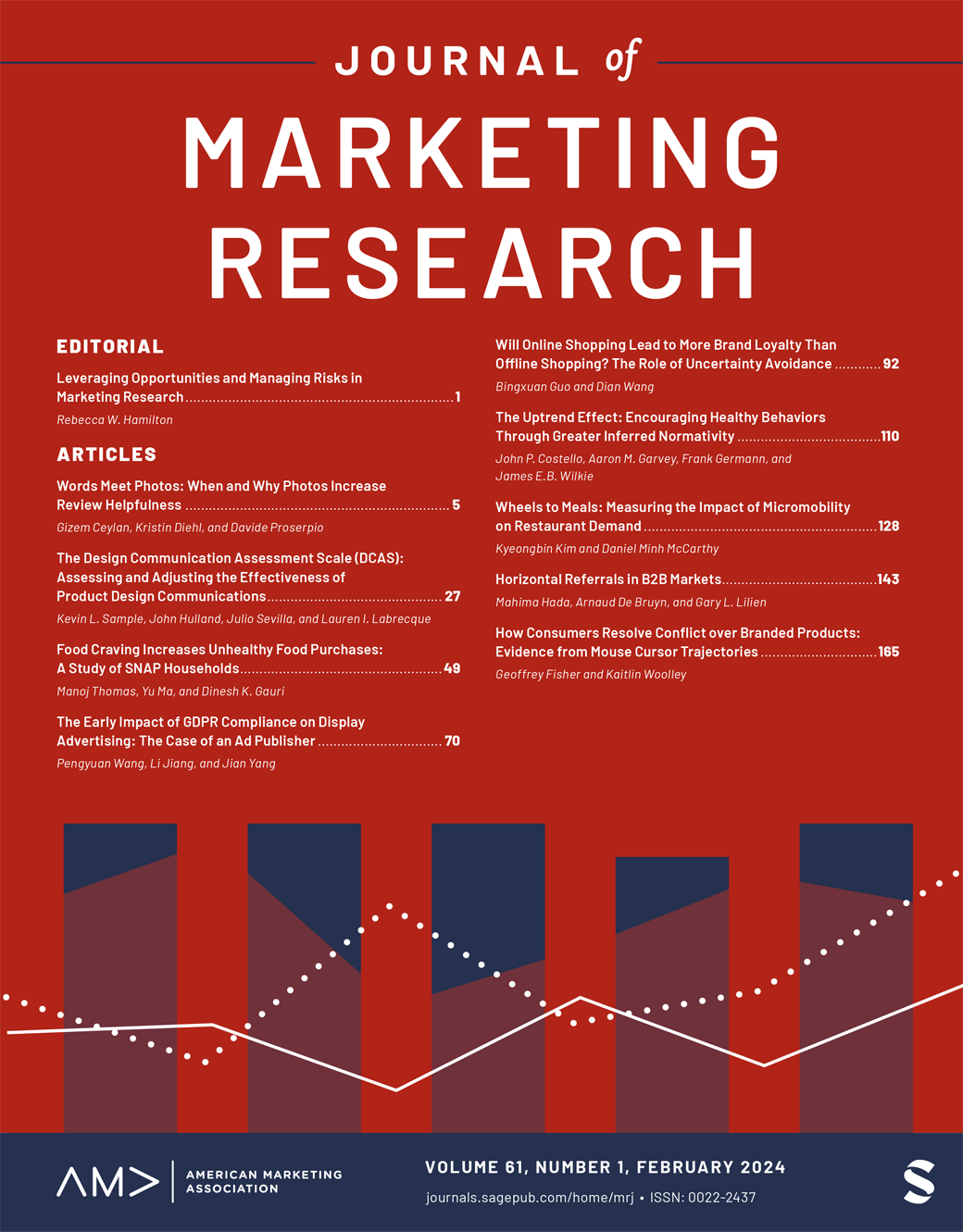EXPRESS: The Value of Genetic Data in Predicting Preferences: a Study of Food Taste
IF 5
1区 管理学
Q1 BUSINESS
引用次数: 0
Abstract
The exponential expansion of consumer genetic testing has led to an accumulation of massive genomic datasets owned by governments and firms. The prospect of leveraging genetic data for enhancing consumer’s health, well-being and satisfaction, through improved personalization, segmentation, and targeting is promising. Nonetheless, this potential has not been studied empirically to date and it is unknown whether and when resources should be invested into incorporating genetic data into strategies and processes. We address this gap in a study of taste preferences, important drivers of food and beverages consumption. Using a large UK-based sample, we find that with sample sizes currently available, genetic data is expected to significantly improve prediction of taste preferences above traditionally used metrics such as demographics, behavioral variables, and even past consumption, especially for tastes that are uncommon in the local diet (e.g., spicy and sour) as they are less expressed behaviorally. We conclude that genetic data shows immense promise for prediction-based applications when other data sources are limited or uninformative. These findings could have significant implications for public health initiatives, potentially aiding development of personalized nutrition plans and dietary interventions.快讯遗传数据在预测偏好方面的价值:食物口味研究
消费者基因检测呈指数级增长,导致政府和企业拥有大量基因组数据集。通过改进个性化、细分和目标定位,利用基因数据提高消费者的健康、福祉和满意度的前景十分广阔。然而,迄今为止,人们尚未对这一潜力进行实证研究,也不知道是否应该以及何时应该投入资源,将基因数据纳入战略和流程。味觉偏好是食品和饮料消费的重要驱动因素,我们通过对味觉偏好的研究填补了这一空白。通过使用英国的大量样本,我们发现就目前可用的样本量而言,基因数据有望显著提高口味偏好的预测能力,超过人口统计学、行为变量、甚至过去消费等传统指标,尤其是对于当地饮食中不常见的口味(如酸辣),因为这些口味在行为上较少表现出来。我们的结论是,当其他数据源有限或信息不足时,基因数据在基于预测的应用中大有可为。这些发现可能会对公共卫生活动产生重大影响,从而有助于制定个性化的营养计划和饮食干预措施。
本文章由计算机程序翻译,如有差异,请以英文原文为准。
求助全文
约1分钟内获得全文
求助全文
来源期刊

Journal of Marketing Research
BUSINESS-
CiteScore
10.30
自引率
6.60%
发文量
79
期刊介绍:
JMR is written for those academics and practitioners of marketing research who need to be in the forefront of the profession and in possession of the industry"s cutting-edge information. JMR publishes articles representing the entire spectrum of research in marketing. The editorial content is peer-reviewed by an expert panel of leading academics. Articles address the concepts, methods, and applications of marketing research that present new techniques for solving marketing problems; contribute to marketing knowledge based on the use of experimental, descriptive, or analytical techniques; and review and comment on the developments and concepts in related fields that have a bearing on the research industry and its practices.
 求助内容:
求助内容: 应助结果提醒方式:
应助结果提醒方式:


